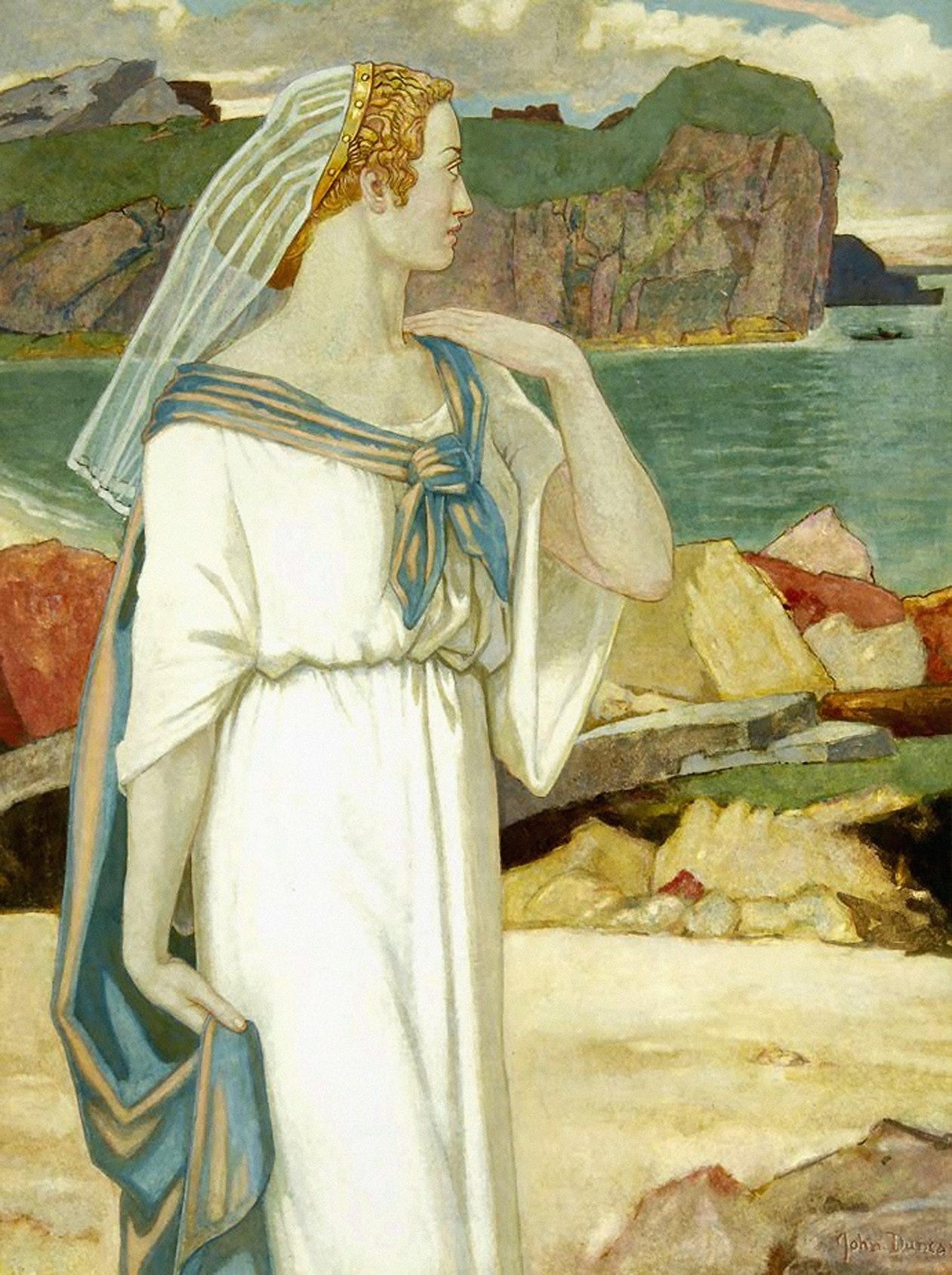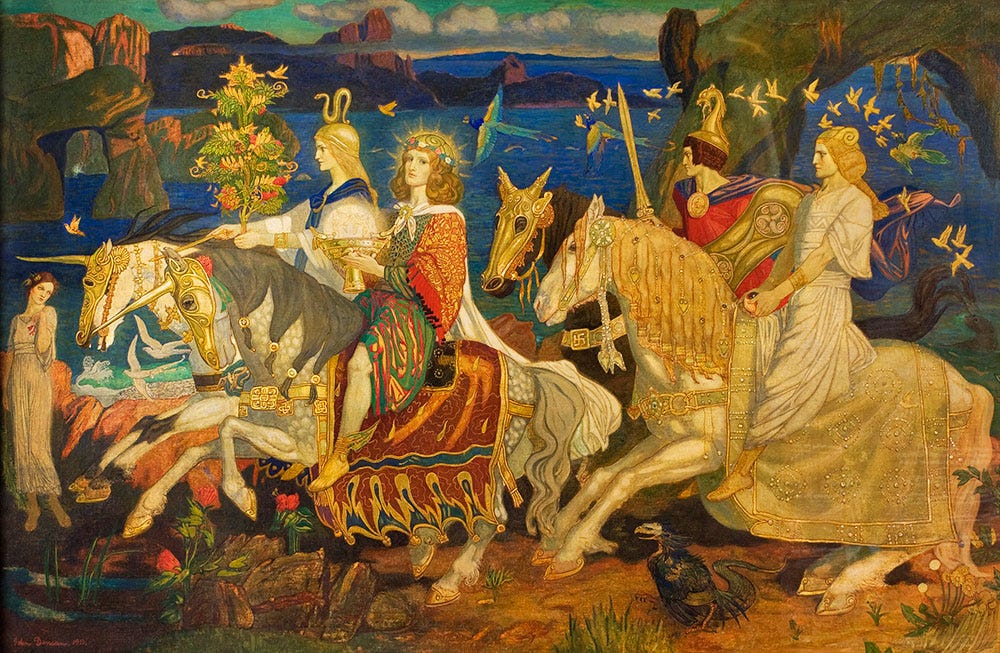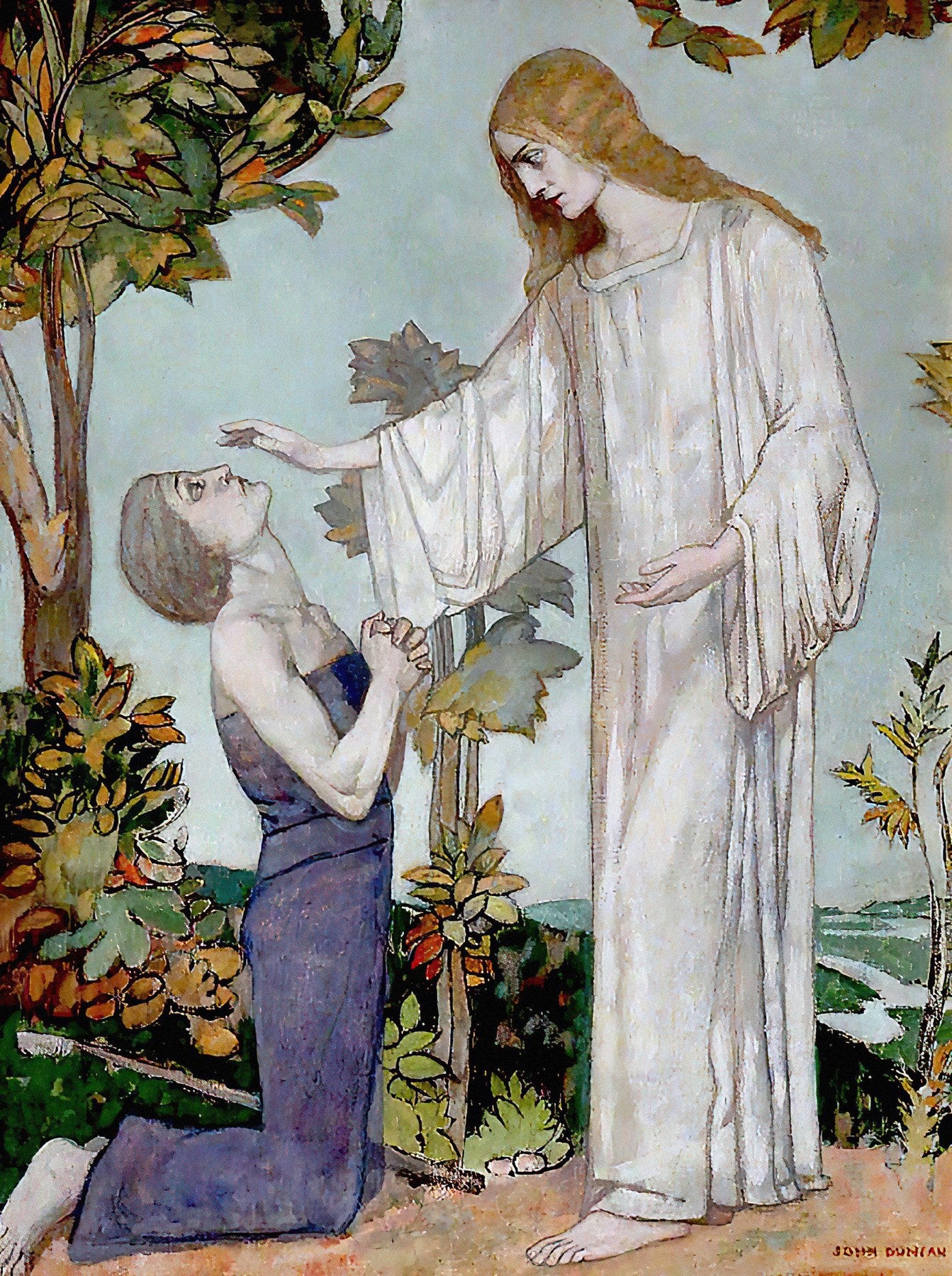Turn Sideways into the Light
Fixing Our Hearts and Eyes on God's Grace
Faith Matters Foundation is frequently asked why it does not engage in apologetics. The following essay, by one of Faith Matters’ founders, is in part a response to that question.
We have, over the years, heard pleas from some church leaders and academics to "defend the faith." It seems "the faith" is under attack by skeptics and critics, and we must marshal our best minds and our best arguments to turn back this onslaught.
I have never felt called to join this battle. I don't think truth needs to be defended; rather it needs simply to be lived. If there are aspects of our faith or our story that can be discredited by good questions, perhaps they are not worth defending. Perhaps we should seriously consider what these questions could teach us. Sometimes challenging questions can disrupt outworn assumptions or paradigms and open onto new understanding. Sometimes in life, our critics can be our teachers.
That may sound naive. It can be argued that there are real enemies out there armed with enough sophistry and resentment to successfully scatter the flock. Consider the vulnerable sheep!
But I choose another way.
Some years ago, I heard well-known Irish poet and teacher David Whyte discuss a fascinating element of Irish mythology. Here's some of what he said:
“There's a marvelous phrase in Irish mythology which comes from a moment in mythological time, where the Tuatha Deì Danann, who were a race of people who lived in Ireland for a good few centuries, was suddenly confronted with a much more violent, rougher layer of immigration which came in. And this new rough lot wanted to get the Tuatha Deì Danann out and wanted to confront them in battle.
“The Tuatha Deì Danann were known to be a very pacific people who were interested more in, you could say, the phenomenology of belonging, than of battle. And they were said to have been a very gracious people and they loved beauty and they loved color. And yet it seemed that they were going to confront these new immigrants in battle. And when the new immigrants pulled their swords and charged down the hill, it's said that the Tuatha Deì Danann turned sideways into the light and disappeared.
"In other words, they refused to have that form of conversation. And they're still said to live in Ireland betwixt and between things. And they're there for the necessary revelation when you want them.
"It's a beautiful phrase 'to turn sideways into the light' . . . not to have a certain form of conversation which will make you smaller . . . you start to say "no" in order to open up this other buoyancy, this other flow which will take you in a different direction."
Whyte refers to the Tuatha Deì Danann in the opening lines of his poem entitled “Tobar Phadraic,” which means the well of Phadraic—a sacred well on a mountainside overlooking Ireland's Galway Bay. It has been a place of resort for centuries, since neolithic times. The well's source is a spring that never runs low at any time of year, which is Tobar Phadraic's famous gift. The poem describes how to locate this sacred well and the gifts it offers.
TOBAR PHADRAIC
Turn sideways into the light as they say the old ones did and disappear into the originality of it all. Be impatient with easy explanations and teach that part of the mind that wants to know everything not to begin questions it cannot answer. Walk the green road above the bay and the low glinting fields toward the evening sun, let that Atlantic gleam be ahead of you and the gray light of the bay below you, until you catch, down on your left, the break in the wall, for just above in the shadows you’ll find it hidden, a curved arm of rock holding the water close to the mountain, a just-lit surface smoothing a scattering of coins, and in the niche above, notes to the dead and supplications for those who still live. But for now, you are alone with the transfiguration and ask no healing for your own but look down as if looking through time, as if through a rent veil from the other side of the question you’ve refused to ask. And you remember now, that clear stream of generosity from which you drank, how as a child your arms could rise and your palms turn out to hold the blessing of the world.
I opt to not "defend the faith" because for me it is not a life-giving conversation. It's not that the questions posed by critics are not in themselves valid, it's that they're often not the most important questions.
I share my life with a fair number of friends and neighbors who have lived their lives with a simple but vibrant faith. The light in their kind eyes and the lines on their gentle faces speak of a quiet joy and of burdens well-borne. They are great neighbors because they have cultivated a deep sense of connection by consistently showing up for others, something their faith challenges them to do on a regular basis. I sometimes wonder if these people have ever wrestled with some of the questions that seem to shake people's faith—that once shook mine. Maybe they have. But ultimately they must have decided to turn sideways into the light, fixing their eyes and hearts on God's grace. Not all believers do this, of course. It's easy to get stuck forever in a religious paradigm where doctrines and commandments are the most important features and where a subtle fear is the great motivator. But I know enough people whose hearts have been sanctified by discipleship to see the power of living a life in Christ.
There is a simplicity on the other side of these complex, challenging questions. It is a quiet source of living water that has always flowed beneath the cultural and dogmatic layers we may heap upon it. Drinking of this stream of divine generosity ushers us into a new kind of existence, where we see a world of greater depth and richer colors, and where we see our fellow travelers as lit angels struggling to grow. It needs no defense. It just keeps flowing and offering its peaceful, generative gifts.
Bill Turnbull is the founder and chairman of Faith Matters.
Artwork by John Duncan.







This is lovely. It reminds me of that line from Marilynne Robinson's luminous novel, Gilead: "Nothing true can be said about God from a posture of defense." Or Richard Rohr's assertion that healthy religion is "an enthusiasm about what is." Amen to turning sideways into the light. Thank you.
Bill Turnbull, as in Anziano Turnbull, formerly of Napoli?? I think we were "housemates" (i.e., in the same district sharing an apartment) about a zillion years ago. I'm glad you've connected with my clever nephew Zach and his Wayfare project. Mi piacerebbe conoscierti di nuovo!